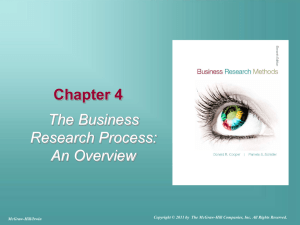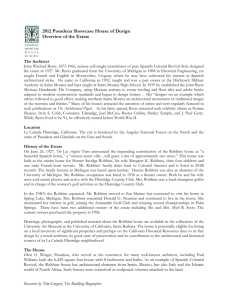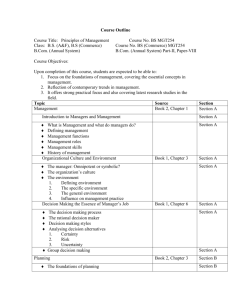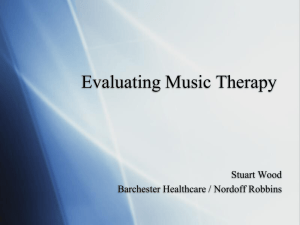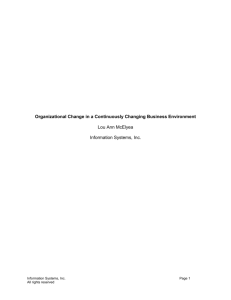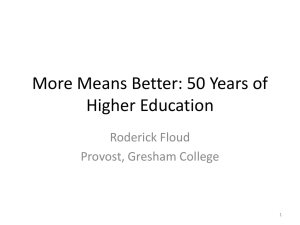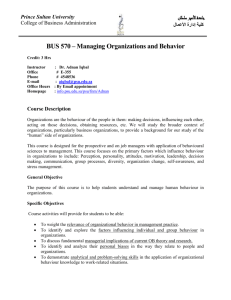Michael S - Functional Family Therapy
advertisement
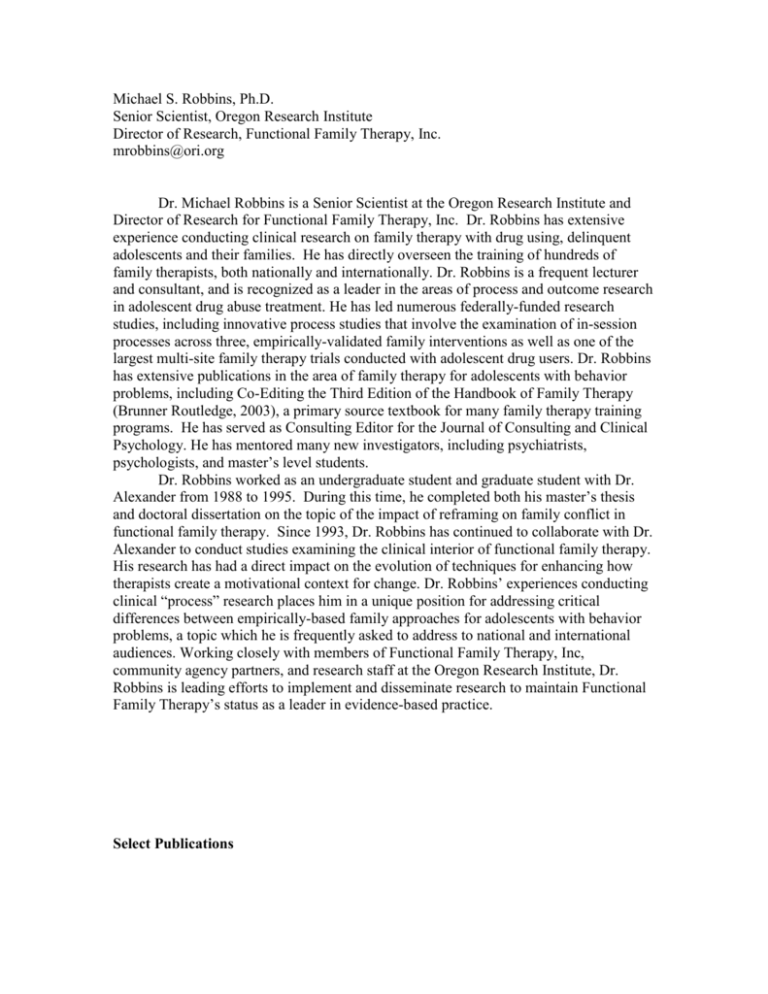
Michael S. Robbins, Ph.D. Senior Scientist, Oregon Research Institute Director of Research, Functional Family Therapy, Inc. mrobbins@ori.org Dr. Michael Robbins is a Senior Scientist at the Oregon Research Institute and Director of Research for Functional Family Therapy, Inc. Dr. Robbins has extensive experience conducting clinical research on family therapy with drug using, delinquent adolescents and their families. He has directly overseen the training of hundreds of family therapists, both nationally and internationally. Dr. Robbins is a frequent lecturer and consultant, and is recognized as a leader in the areas of process and outcome research in adolescent drug abuse treatment. He has led numerous federally-funded research studies, including innovative process studies that involve the examination of in-session processes across three, empirically-validated family interventions as well as one of the largest multi-site family therapy trials conducted with adolescent drug users. Dr. Robbins has extensive publications in the area of family therapy for adolescents with behavior problems, including Co-Editing the Third Edition of the Handbook of Family Therapy (Brunner Routledge, 2003), a primary source textbook for many family therapy training programs. He has served as Consulting Editor for the Journal of Consulting and Clinical Psychology. He has mentored many new investigators, including psychiatrists, psychologists, and master’s level students. Dr. Robbins worked as an undergraduate student and graduate student with Dr. Alexander from 1988 to 1995. During this time, he completed both his master’s thesis and doctoral dissertation on the topic of the impact of reframing on family conflict in functional family therapy. Since 1993, Dr. Robbins has continued to collaborate with Dr. Alexander to conduct studies examining the clinical interior of functional family therapy. His research has had a direct impact on the evolution of techniques for enhancing how therapists create a motivational context for change. Dr. Robbins’ experiences conducting clinical “process” research places him in a unique position for addressing critical differences between empirically-based family approaches for adolescents with behavior problems, a topic which he is frequently asked to address to national and international audiences. Working closely with members of Functional Family Therapy, Inc, community agency partners, and research staff at the Oregon Research Institute, Dr. Robbins is leading efforts to implement and disseminate research to maintain Functional Family Therapy’s status as a leader in evidence-based practice. Select Publications T.L. Sexton, G. Weeks, & M. Robbins (Eds.) (2003), Handbook of Family Therapy, New York, NY: Brunner-Routledge. Robbins, M.S., Szapocznik, J., Dillon, F.R., Turner, C.W., Mitrani, V.B., & Feaster, D.J. (2008). The Efficacy of Structural Ecosystems Therapy with Drug Abusing/Dependent African American and Hispanic American Adolescents. Journal of Family Psychology, 22(1), 51-61. Robbins, M.S., Szapocznik, J., Feaster, D.J., Mayorga, C.C., Dillon, F.R., & Burns, M. (2007). The Impact of Family Functioning on Family Racial Socialization Processes. Cultural Diversity and Ethnic Minority Psychology, 13(4), 313-320. Robbins, M.S., Liddle, H.A., Turner, C.W., Dakof, G.A., Alexander, J.F., & Kogan, S.M. (2006). Adolescent and Parent Therapeutic Alliances as Predictors of Dropout in Multidimensional Family Therapy. Journal of Family Psychology, 20 (1), 108-116. Robbins, M.S., Briones, E., Schwartz, S.J., Dillon, F.R., & Mitrani, V.B. (2006). Differences in family functioning in grandparent and parent-headed households in a clinical sample of drug using African American adolescents. Cultural Diversity and Ethnic Minority Psychology, 12(1) 84-100. Robbins, M.S., Kumar, S., Walker-Barnes, C., Feaster, D., Briones, E. & Szapocznik, J. (2002). Ethnic differences in psychiatric comorbidity among substance abusing adolescents referred to outpatient therapy. Journal of the American Academy of Child and Adolescent Psychiatry, 41(4), 394-401.
